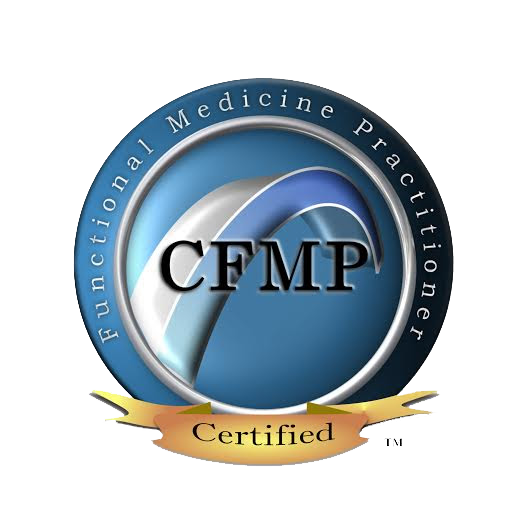
If you google “what causes irritable bowel syndrome” you will find many websites that say the cause is unknown. One of the reasons “the cause” for irritable bowel syndrome is “not known” is that this diagnosis is so general that many conditions are called irritable bowel syndrome. Honestly, I think is laughable that the phrase “irritable bowel syndrome” is a diagnosis at all. Ask anyone who has been diagnosed with irritable bowel syndrome if the term itself was helpful. That person already knew their bowels were irritated! Imagine you go to the doctor for a sore toe and the doctor tells you, “You have sore toe syndrome!” Well DUH! Let’s take a look at some of the reasons your bowels can become irritated.
Several conditions can cause irritable bowel syndrome.

Hypochloridria or the stomach not making enough acid can cause irritable bowel syndrome. If the stomach is not producing enough acid, the food will go into the small intestine undigested, the gallbladder and pancreas will not secrete their digestive juices, and the end result is a very irritated bowel! If you want more info on hypochloridria is and how to treat it, I wrote about it HERE.
Parasites and harmful microbes can cause irritable bowel syndrome. These are diagnosed with stool analysis. I have frequently found this to be the cause in my patients who have been diagnosed with irritable bowel syndrome. Once the pathogen is found, getting rid of it is usually pretty straight forward.
Leaky gut syndrome is actually what some people have, who have been diagnosed with irritable bowel syndrome. Leaky gut syndrome is when the lining of the gut is damaged, allowing large molecules into the bloodstream that can cause all sorts of problems. You can learn more about leaky gut syndrome HERE.
An imbalance in healthy flora in the colon can cause irritable bowel syndrome. A stool analysis with a microbiological work up will show what kinds of microbes are living in the colon and how many of each there are. If there are too many of one kind or not enough of another, it can irritate the colon.
Small intestine bowel overgrowth (SIBO) is the one of the most common causes of irritable bowel syndrome. In fact one study found that 84% of the people diagnosed with irritable bowel syndrome had SIBO (1). So maybe you’re wondering what exactly is SIBO, and how is it diagnosed and treated? Well I’m glad you asked!
WHAT IS SIBO?
Thankfully, SIBO doesn’t mean the small intestine literally grows out of control! Normally the small intestine is about 20 feet long–can you imagine if it grew longer? The overgrowth is referring to microbes that live in the small intestine. Simply put, SIBO happens when the numbers of microbes living in the small bowel grow out of control. This overgrowth can come from good microbes like acidophilus or harmful ones like candida.
This microbial overgrowth can damage the intestine, leading to symptoms like bloating/abdominal gas, flatulence, belching, abdominal pain, discomfort, or cramps, constipation, diarrhea, or a mixture of the two, heartburn, nausea, malabsorption of iron, vitamin D, vitamin K, or B12, osteoporosis, headache, fatigue, joint/muscle pain, and certain dermatologic conditions. Diseases associated with SIBO include hypothyroidism, lactose intolerance, gallstones, Crohn’s disease, systemic sclerosis, celiac disease, chronic pancreatitis, diverticulitis, diabetes with autonomic neuropathy, fibromyalgia and chronic regional pain syndrome, hepatic encephalopathy, non-alcoholic steatohepatitis, interstitial cystitis, restless leg syndrome, acne rosacea, and erosive esophagitis, lymphocytic colitis and leaky gut syndrome Isn’t that a nice list? Yeah, SIBO is bad news. If you have SIBO it can make your life miserable.
There are several things that seem to be connected to the cause of SIBO. Hypochloridria (poor HCL production in the stomach) can cause SIBO. This includes the use of antacids and proton pump inhibitors. My article on Acid Reflux explains how these drugs are not needed in most cases of GERD. This is a classic example of how a drug causes more problems than it fixes. Poor function of the gallbladder and pancreas, as well as abnormal small intestine motility are possible causes of SIBO. Heavy use of alcohol increases the risk of SIBO significantly. Food poisoning can also lead to SIBO.
SIBO and Bloating
This is a great visual of how SIBO can cause so much pain and gas. If a person who cannot digest the sugar in milk and who does not have SIBO drinks one ounce of milk, about this much gas is produced:

When the same person but this time with SIBO drinks one ounce of milk they produce this much gas:

The point here is to show how these microbes, which feed on sugars and certain plants, produce a lot of gas. Can you imagine how painful it would be to have that much gas in your small intestine. Can you see how SIBO is often diagnosed as irritable bowel syndrome? If you are regularly suffering from painful bloating, it is very likely that you have SIBO.
HOW IS SIBO DIAGNOSED?
As I have just demonstrated, lots of gas is the hallmark sign of SIBO. SIBO is diagnosed by measuring the kinds of and volume of gas a person gives of after they drink a lactulose solution. The human body does not produce hydrogen or methane gas. However the microbes that live in our gut do make hydrogen and methane gas. So a person with high amounts of microbes will give off lots of hydrogen or methane gas. Here is a test results of one of my patients with SIBO:

The blue line represents hydrogen, the green line represents methane and the red line is a combination of both. The patient collects his/her breath in special bags. The first sample is taken as a baseline and is on the far left of the chart. After the first sample is taken, the patient drinks a lactulose (a nonabsorbable sugar) solution. Then every 20 minutes the patient fills a bag with their breath. Taking samples every 20 minutes allows us to measure the gases as the lactulose moves through the gut. As you can see on this patient, the concentration of gas was nice and low until the 60 minute mark. At 60 minutes the concentration of both the hydrogen and methane begin to increase. The increase in gas between the 60 and 120 minute samples show a positive test for SIBO. Remember the only thing that can produce hydrogen or methane in the body are microbes. Once the lactulose reaches the large intestine, we expect and want to see a rise in the gases because the large intestine needs to have a lot of healthy microbes. A normal test would have low levels of gas until the 140 minute sample.
If this test is positive, then a patient is diagnosed with SIBO and treatment can be given.
HOW IS SIBO TREATED?
The treatment of the overgrowth of microbes in the small intestine focuses on six areas:
- Starve the microbes
- Kill the microbes
- Get the small intestine moving
- Improve Digestion
- Heal the small intestine
- Fix nutrient deficits
In order to starve the microbes, patients must eat a diet that does not have food for the microbes in it. These bacteria love starches, sugars, fibers and grains. The diet is basically a very low carbohydrate diet.
There are two ways to kill the overgrowth, pharmaceuticals and antimicrobial nutrients. Both work very well. Choosing between the two is something a patient and physician can figure out together.
Improving motility in the small intestine, getting it moving properly, is important to prevent a recurrence of the SIBO. If the motility of the small intestine is too slow, microbes will feed on the starches in the diet, and as a result SIBO can reoccur.
SIBO damages the small intestine. Sometimes SIBO patients will develop a leaky gut. Once the overgrowth is resolved, the proper nutrients are needed to help the gut heal. Things like L-glutamine, EFA’s, zinc, pantothenic acid, vitamins C, E, and A, beta carotene, N-acetyl glucosamine, gamma oryzanol, glycyrrhiza and aloe vera are all helpful in healing the gut.
A person with SIBO will be deficient in nutrients because the bacteria will disrupt the absorption. Iron, vitamin D, K and B12 as well as EFA’s are common nutrients in which a person with SIBO will be deficient. Proper testing is needed at this point to make sure the patient is getting sufficient nutrients.
Irritable bowel syndrome is not something a person has to live with for the rest of his/her life. With a detailed history, exam and proper lab testing, the cause of irritable bowel syndrome and be found and treated.
Start Today!
If you are looking to get tested for SIBO or any of the other causes of Irritable Bowel Syndrome (IBS), you’ve come to the right place. Our office can order these tests for you no matter where you are in the world. Additionally, we can recommend treatment based on the results to get you feeling better. To get started, fill out the new patient form below! If you have any questions please contact our office – we are happy to help you!
Reference:
(1) Lin HC, et al. Small intestinal bacterial overgrowth: a framework for understanding irritable bowel syndrome. JAMA. 2004 Aug 18;292(7):852–858.



